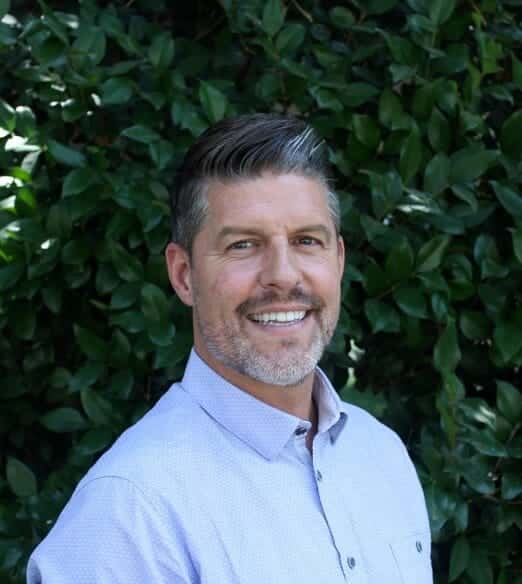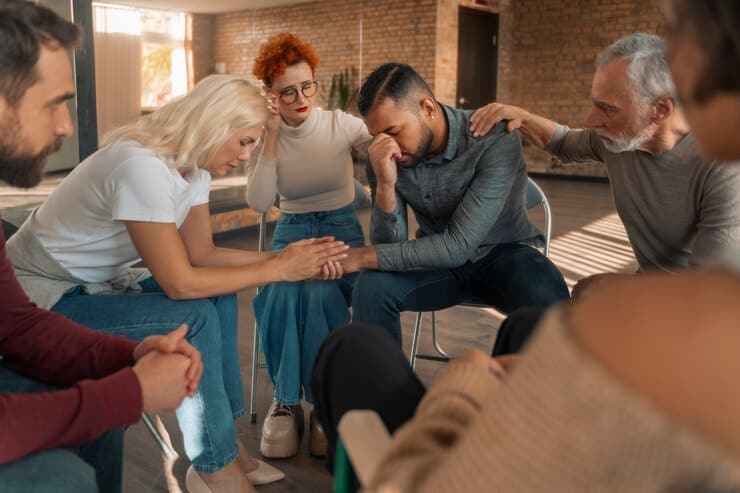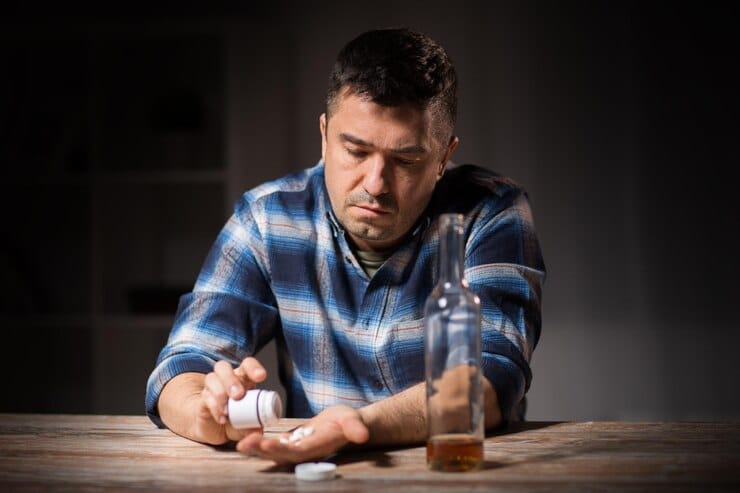Finding the best-suited residential treatment center in California that truly meets your needs is one of the most important decisions you can make when seeking a path to recovery from alcohol or substance misuse. The array of choices can be overwhelming. Knowing what to look for that really matters is often a challenge. Read on to learn more about the key factors to consider as you seek a solution.
What Defines the Best Residential Treatment Centers?
Two key elements in defining the best center are accreditation and staff credentials.
Accreditation: The Gold Standard
For those seeking treatment, accreditation is a key indicator of a facility’s reliability and quality. Accreditation ensures addiction treatment centers meet high standards of care, safety, and effectiveness.
Recognized bodies evaluate facilities to confirm they follow evidence-based practices, ethical guidelines, and proper protocol. Among these are the National Association of Addiction Treatment Providers (NAATP) and Legitscript, for authorized advertising on Google and Facebook, both of which have certified Northbound Treatment Center. Other accreditation services include the Commission on Accreditation of Rehabilitation Facilities (CARF) and The Joint Commission.
Key benefits of accreditation include:
- Quality Care: Accredited centers use proven treatments, improving recovery outcomes.
- Patient Safety: Strict standards reduce risks like relapse, overdose, or unethical practices.
- Insurance Acceptance: Many insurers only cover treatment at accredited facilities.
- Trust & Credibility: Families and healthcare providers rely on accreditation to identify reputable centers.
- Legal Compliance: Helps meet state/federal licensing requirements.
In addition, California’s Department of Health Care Services (DHCS) licenses and regulates treatment facilities to ensure they comply with state standards.
By selecting a licensed, accredited facility you increase the likelihood of effective, professional care.
Staff Credentials That Matter
You want the best treatment possible. For this, it’s important to ensure that the management and staff have appropriate and current professional credentials. In California, addiction treatment professionals and facilities must meet specific credentials to ensure quality care. The main certifications and accreditations used for clinical staff include:
- Certified Addiction Treatment Counselor (CATC), levels I to III.
- LAADC (Licensed Advanced Alcohol & Drug Counselor) – Higher-level certification requiring a master’s degree.
- Licensed Clinical Professionals (For Therapy & Mental Health)
- LMFT (Licensed Marriage & Family Therapist)
- LCSW (Licensed Clinical Social Worker)
- LPCC (Licensed Professional Clinical Counselor)
- Psychologist (PhD/PsyD)
Medical Credentials (For Medication-Assisted Treatment & Detox)
- Physicians (MD/DO) – Must have a DEA license to prescribe addiction medications (e.g., buprenorphine, naltrexone).
- Nurse Practitioners (NP) & Physician Assistants (PA) – Can prescribe MAT with proper DEA-X waiver.
These matter for:
- Insurance billing (many plans require accredited facilities & licensed staff).
- Legal compliance (state laws mandate proper credentials).
- Quality assurance (ensures evidence-based treatment).
Treatment Approaches in Top-Tier Centers
As someone looking for treatment, the type of care is top-of-mind. Leading residential treatment facilities combine evidence-based therapies and holistic approaches.
Evidence-Based Therapies
Among the types of therapy commonly practiced, the following are well-established evidence-based therapies:
- Cognitive Behavioral Therapy (CBT): Helps change negative thoughts and behaviors to improve mental health. It focuses on solving current problems and developing coping skills.
- Dialectical Behavioral Therapy (DBT): Combines CBT with mindfulness to help manage emotions, reduce self-harm, and improve relationships, especially for borderline personality disorder.
- Eye Movement Desensitization and Reprocessing Therapy (EMDR): Uses guided eye movements to help process traumatic memories, reducing distress and reframing negative beliefs. Effective for PTSD and trauma.
- Experiential Therapy: Uses activities, role-playing, and creative expression to help clients explore emotions, gain insight, and heal from past trauma in an interactive way.
- Individual Therapy: One-to-one therapy with a licensed therapist to address personal issues, improve mental health, and develop coping strategies in a private setting.
Holistic Modalities
- Art Therapy: Uses a variety of media and techniques to facilitate self-expression and work through feelings and trauma.
- Meditation: A mindfulness practice focusing on breath, awareness, or mantras to reduce stress, increase clarity, and promote emotional balance. Benefits mental and physical health.
Dual Diagnosis Capability – A Non-Negotiable
Addiction and mental health issues are often intertwined. Sometimes, one precedes the other, but it is often the case that where there is addiction, there are underlying mental health issues. Common co-occurring mental health problems that can give rise to addiction include anxiety, depression, bipolar disorder, post-traumatic stress disorder (PTSD), eating disorders, personality disorders, attention-deficit hyperactivity disorder (ADHD), and obsessive-compulsive disorder (OCD).
And many who experience mental health issues resort to substance use as a way of coping. Instead, it typically worsens the mental health condition creating a complex interplay that, left untreated, leads to declining mental health and unresolved addiction.
Integrated Mental Health Care
Integrated dual diagnosis treatment is a key element of the best treatment centers. This involves both addiction specialists and mental health specialists working together with a personalized treatment plan that addresses both addiction and mental health issues simultaneously, rather than separately.
Trauma-Informed Specialists
Because trauma is often at the root of addiction, leading treatment centers offer trauma-sensitive therapists working within a trauma-informed approach. This is a framework that acknowledges the profound effects of trauma on individuals’ lives and behaviors. It emphasizes physical and emotional safety, fosters trust through transparency, and promotes empowerment by giving individuals control over their healing process.
This approach avoids triggers and re-traumatization by integrating compassion, understanding, and trauma awareness into policies, environments, and care practices across all interactions.
Specialized Programs for Unique Needs
A foundation of the best treatment centers is offering personalized care. In this approach, a thorough psychiatric assessment is done when a client arrives at the center. Based on this, a unique treatment plan is created for each client. This sets out the approach for both addictions and mental health treatment as required, defining which modalities for each will be used. In this way, each client is best served according to their needs.
Continuum of Care: Beyond Residential
Treatment doesn’t stop after the completion of the initial length of stay. Outstanding treatment centers offer a suite of services following discharge.
Education for Relapse Prevention
Psychoeducation for relapse prevention is an important part of the therapy offered by reputable centers, usually in the latter stages of treatment. This teaches clients about triggers, warning signs, and coping strategies to maintain recovery. It empowers them with knowledge and skills to manage stress, avoid high-risk situations, and sustain long-term wellness.
Aftercare Planning for Long-Term Success
Aftercare planning is a key part of the recovery process, which begins while still in treatment. It helps clients identify their triggers and develop coping strategies for them, whether they be people, places, or things associated with substance use.
In addition, clients are referred to support groups such as AA, NA or SMART Recovery where they can develop mentoring and peer relationships with others in recovery. Understanding that relapse does happen and is a part of the recovery process, support groups can play a crucial role in helping clients regain their sobriety and maintain it.
Also, continuing to see a therapist or counselor individually provides much needed support, helping the client to develop insight into their unique patterns of coping and giving them the tools to thrive beyond addiction. As well, a therapist can continue the work to explore any related mental health issues the client faces and help them work this through.
Some centers offer work exchange programs and even the opportunity to work at the center and qualify as addiction counselors themselves. Others offer sober living arrangements where a group of people who are all in recovery live together in a supportive, substance-free environment.
Good facilities offer alumni programs that provide a supportive bridge back to the community. These programs typically involve frequent communication between the alumni staff and clients following discharge. Staff availability to assist clients who may have questions or be in crisis is a key part of this service, using voice, text, and social media technologies.
Often, mentors who themselves are in recovery are assigned to work with clients to provide one-on-one support. Periodically, events are held combining group processing sessions with fun activities to build camaraderie and mutual support among clients.
Family Involvement at Quality Centers
Family involvement is offered by leading centers and can be a key element for successful recovery. Substance abuse often is rooted within the client’s family system. Family therapy explores communication patterns and family dynamics for relating with each other and for coping with the client’s issues. This can be a powerful success factor for the client’s recovery. Research shows that involving family in recovery boosts self-esteem and increases successful treatment outcomes.
Multi-Family Therapy Sessions
Multi-family therapy sessions bring together multiple families of clients in a group setting to address shared challenges, improve communication, and build support networks. Led by a therapist, these sessions encourage collective problem-solving and mutual learning.
Practical Considerations
Insurance Verification Tips
When verifying insurance for addiction treatment, confirm coverage levels, in-network status, and pre-authorization requirements, as well as document deductibles, co-pays, and session limits. Always double-check benefits for detox, inpatient, and outpatient services to avoid claim denials. The best centers have knowledgeable staff who can provide detailed assistance navigating the insurance landscape.
Location & Amenities That Aid Recovery
A recovery-friendly location offers peaceful, distraction-free surroundings with nature access. Key amenities include private rooms, fitness areas, nutritious meals, therapy spaces, and recreational activities—all designed to promote healing, relaxation, and holistic wellness.
Residential Treatment in California
For more than 30 years, Northbound Treatment Center in California has been at the forefront of providing lifesaving, compassionate care, and specialized services to help people from all walks of life feel better, discover themselves, and live free from addiction. We have facilities throughout California. Reach out to our admissions team now.
Author
-

President, CEO & Founder at Northbound Treatment Network
Paul Alexander is the CEO, President & Founder of Northbound Treatment Network in Newport Beach, California. He believes wholeheartedly in transformational leadership, organizational health and effective, fully integrated substance use disorder and mental health treatment. With over 27 years of experience in behavioral healthcare, Paul has extensive knowledge of “in vivo” treatment modalities, clinical development, operations, strategy, marketing and financial planning. He has been widely recognized for his development of collegiate-based residential treatment programs for students in recovery and authored a research study at The University of California confirming this modality’s effectiveness.
Paul’s comprehensive professional experience, willingness to innovate, and emphasis on organizational health are vital factors in Northbound’s continued success. Paul received his Certified Addiction Treatment Specialist training at Saddleback College in Mission Viejo, CA, and was awarded Outstanding Alumni Service Award in 2002. Paul holds a Bachelor of Arts degree in Criminology, Law and Society, Summa Cum Laude, from University of California, Irvine, and a Juris Doctorate degree from Loyola Law School of Los Angeles. Paul currently serves on The National Association of Addiction Treatment Providers (NAATP) board. In addition, he serves on The Family Recovery Foundation board and The CarePossible board in Orange County; both organizations are committed to raising funds for family recovery and treatment for former military personnel. Paul is in recovery himself and lives in Orange County with his wife Silvana and his two young sons, Noah and Dean.











